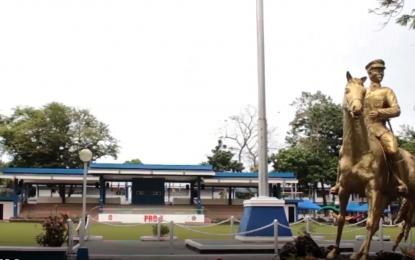
Camp General Simeon Ola, the Police Regional Office 5 headquarters in Legazpi City, Albay (PNA file photo)
LEGAZPI CITY – Nearly 2,300 villages in the six provinces of the Bicol Region have been cleared of illegal drugs by the Philippine Drug Enforcement Agency (PDEA), the Police Regional Office (PRO) 5 (Bicol) said Wednesday.
As of Nov. 8, out of the 2,793 barangays affected by illegal drugs, 2,270 have been declared drug-cleared while the remaining 523 villages are still under assessment by authorities, PRO-5 spokesperson Lt. Col. Malu Calubaquib said in a report.
"There are a total of 3,471 barangays in the Bicol region. Of these, 2,973 were affected by illegal drugs, while 678 were not. Out of the affected barangays, 2,270 have been cleared of illegal drugs, leaving only 523 that remain to be cleared. The cleared barangays were from Albay-- 558; Camarines Norte-- 232; Camarines Sur-- 551; Catanduanes-- 232; Masbate-- 358; Sorsogon-- 327 and Naga City--12," she said.
A drug-cleared barangay refers to a locality that was previously categorized as drug-affected but has undergone the drug-clearing program and has been officially declared drug-cleared by the Regional Oversight Committee on Barangay Drug Clearing.
"The process of clearing barangays adheres to strict parameters set by the Philippine Drug Enforcement Agency, which includes the absence of active drug users, no drug pushers, no maintained drug dens, no coddler protectors, no financiers, no cultivators, no manufacturers, and other criteria," Calubaquib said.
The criteria also includes regular house visitations and monitoring to identify drug personalities, as well as the provision of appropriate intervention to drug users and pushers.
Calubaquib added that the Bicol police and PDEA are committed to creating a drug-free Bicol and working closely with the community and local authorities. (PNA)
